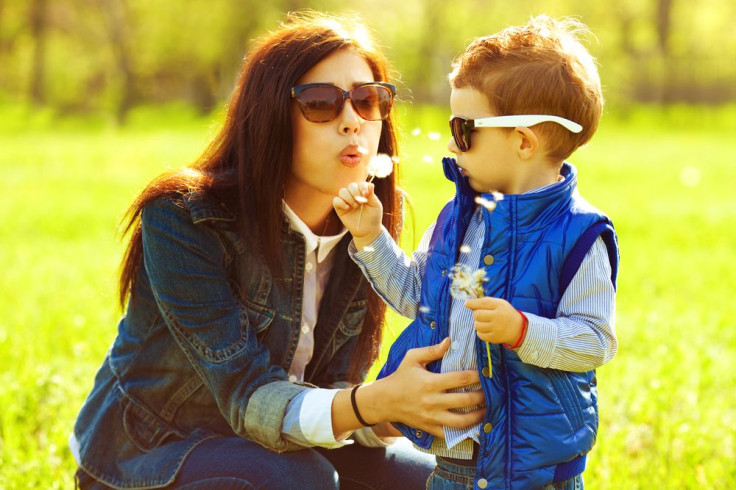Helicopter Parents Compromise Future Relationships With Their Kids; Children As Young As 2 Feel Effects

From the moment a child is born, as most parents would know, every waking moment is spent tending to their needs, and keeping a close watch on what they’re doing. But there comes a time when every parent must learn to loosen their grip over the child’s actions, activities, and behaviors, and learn to let them find those things on their own. While some parents would probably agree this time comes a little later, a new study finds that moms who give their children space to do their own thing when they’re 2 years old were more likely to have better relationships with their children.
“When mothers are highly controlling of small children's play, those children are less likely to want to engage with them," said Jean Ispa, co-chair of the University of Missouri, Columbia Department of Human Development and Family Studies, in a press release. "Respect for autonomy is important, not only for children's growth, but also for creating positive parent-child relationships. We found that mothers who supported their children's autonomy were regarded more positively by their children than mothers who were highly directive.”
The term for this type of parenting, if you haven’t heard it already, is “helicopter parenting,” and it can involve a wide range of actions that effectively reduce a child’s chances of making their own decisions. These can range from choosing who the child becomes friends with to who their teacher is, and even helping out too much with their school work. “In toddlerhood, a helicopter parent might constantly shadow the child, always playing with and directing his behavior, allowing him zero alone time,” psychologist Dr. Ann Dunnewold told Parents magazine.
For the study, the researchers looked at the parent-child behaviors among more than 2,000 moms, specifically focusing on their directiveness — the extent to which they tried to control their child’s activities. They measured mothers’ directiveness when their children were 2 years old, and then again during an interview with the children when they were in fifth grade, or about 10 years old. They found that as a mom’s directiveness increased, her child’s negative attitude toward her did as well — likewise, as directiveness decreased, positive attitudes increased.
“Mothers who are very directive when their children are toddlers often tend to still be controlling when their children enter adolescence," Ispa said. "With small children, mothers mostly use physical controls, but when children are older these directives become more verbal and psychological, such as by restricting what children are allowed to say or by not allowing them to speak their minds. It's not surprising that their children begin to view them in a negative light."
The problem with helicopter parenting, however, is that it extends beyond a bad relationship with parents. Strictly controlled environments, whether it’s school or the home, stifle children’s opportunities to be curious, and they miss out on chances to be creative. No matter the problem, a child who can learn to solve it in their own way will learn how to be more creative than a child who’s given the answer without a chance to consider all aspects on their own. Moreover, and connecting back to the growth of negative feelings toward moms, helicopter parenting is often perceived by the child as criticism — and no one likes to be constantly criticized.
“Many times, parents think that employing these controlling behaviors is the 'right way' to raise children, but our research shows that really does not work," Ispa said. "Allowing children age-appropriate levels of autonomy to make safe decisions is very good for kids, and they usually will make wise decisions when they have been taught about safe choices as well as consequences. A good place for parents to start would be to have open discussions and allow their children to express their own points of view. When giving children instructions, explain reasons for decisions rather than simply saying, 'Because I said so.'"
Source: Ispa J, Carlo G, Palermo F, Su-Russell C, Harmeyer E, Streit C. Middle Childhood Feelings Toward Mothers: Predictions From Maternal Directiveness at the Age of Two and Respect for Autonomy Currently. Social Development. 2015.
Published by Medicaldaily.com



























